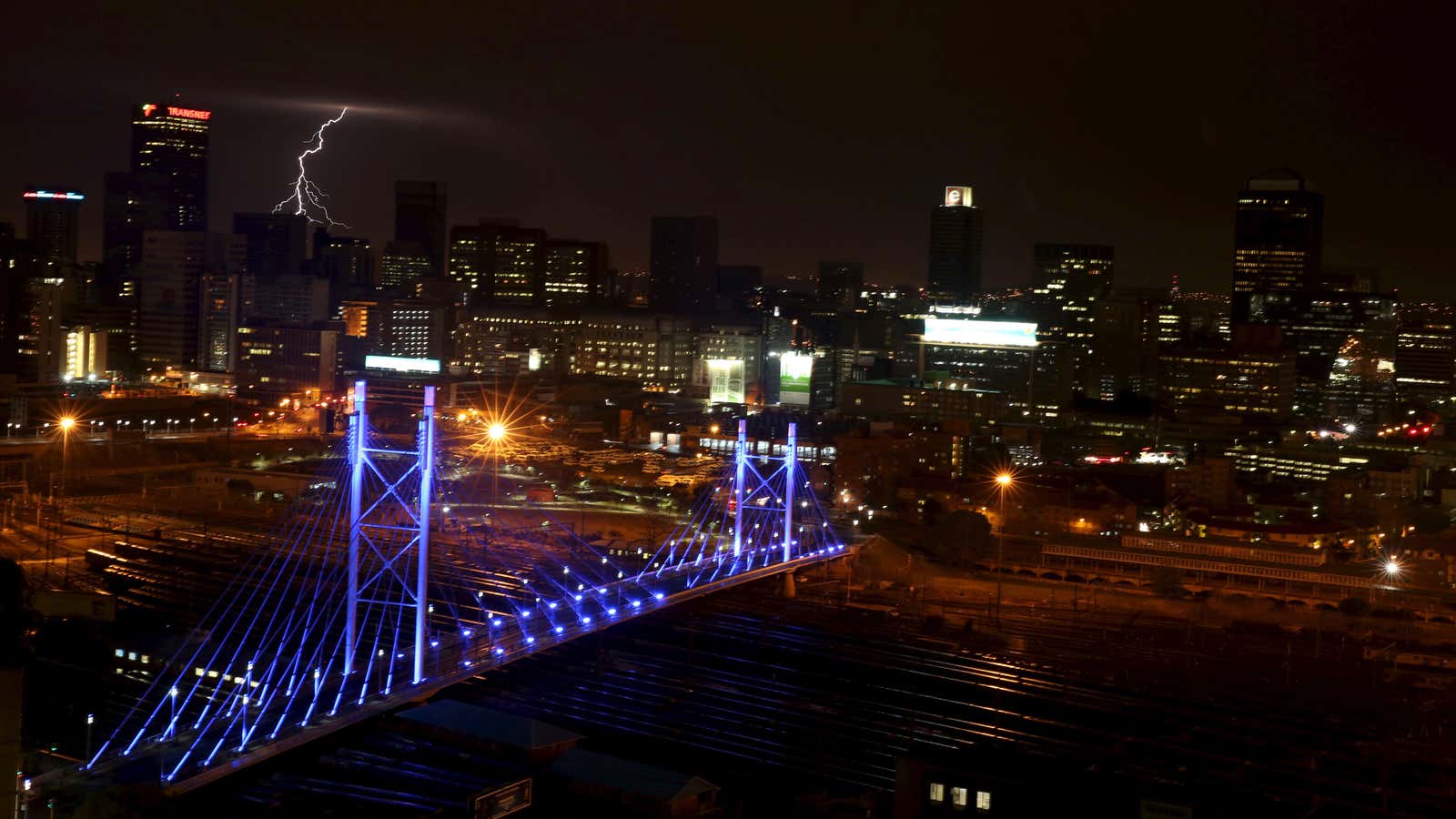On his first day on the job, Johannesburg’s new mayor ordered a skills audit and performance review of the city’s staff, assuring anyone who was competent that they would keep their jobs. Herman Mashaba was elected mayor of South Africa’s largest city late on Aug. 22, promising to end corruption and ushering in a new political era for the country’s economic capital.
Mashaba is no politician. The entrepreneur made his name after founding the Black Like Me hair care line in the late 1980s, specializing in straighteners and perm products. While his journey from grocery store clerk to leading businessman has been described as inspirational, his ability to navigate contentious city politics has been called into question. He only formally became involved in politics in December.
Never before has South Africa’s mayoral races and local ward councilor elections been more important. While national elections hold more power, local governments have a direct effect on voters, from faulty traffic lights to clean water. This time, voters seem to have used their ballot to send a message to the ruling party about its failures at all levels of government. But the ruling party’s foundering, means Mashaba and the opposition are now in power.
Mashaba is one of three new mayors in South Africa who belong to the main opposition party, the Democratic Alliance. The party beat out the ruling African National Congress in the local government elections in major urban areas. In Pretoria and Johannesburg, the Democratic Alliance didn’t win an outright majority, but secured the backing of the recently formed third largest political party, the Economic Freedom Fighters.
The two opposition parties are on the opposite ends of the political spectrum. The DA is a liberal party that favors a smaller government, scaled back social welfare with a focus on boosting small business. But the party has struggled to shed the image that it protects the interests of white South Africans and only elected its first black leader last year. The EFF are firmly placed on the left of the spectrum, their most prominent political policy the expropriation of land and natural resources to the “custodianship” of the state.
They do, however, share common ground in their quest to remove the ANC. The two parties could not come to a formal coalition, but a loose agreement saw the EFF’s councilors vote with the DA’s councilors to wrest control from Nelson Mandela’s party. The 104-year old liberation movement was unable to secure a majority in the three major cities, making it vulnerable to opposition party collaboration.
The ANC remains the strongest party, winning an absolute majority in 161 councils with 5,163 elected seats compared to the DA’s 24 councils and 1,776 councilors, according to data from the Electoral Institute for Sustainable Democracy. But the ANC’s loss of 468 seats has been larger than the DA’s gain of 221 seats since 2011, pointing to an electorate disillusioned with the many scandals of the ruling party and president Jacob Zuma.
The ANC has not only shed votes in urban areas, but also increasingly in rural parts of the country, with analyst predicting that a significant chunk of the ANC’s traditional voter base simply decided to stay home on Aug. 3. In the meantime, the DA has gained support among first time voters and has seen growth (although well below the national level) among black voters, according to the institute.
The ANC say they have taken collective responsibility for their historic election losses. Rather than blaming Zuma, the party’s executive say they will “re-engineer” the organization to root out corruption and inefficiency after an election that saw national issues weaken the party’s grassroots support.
